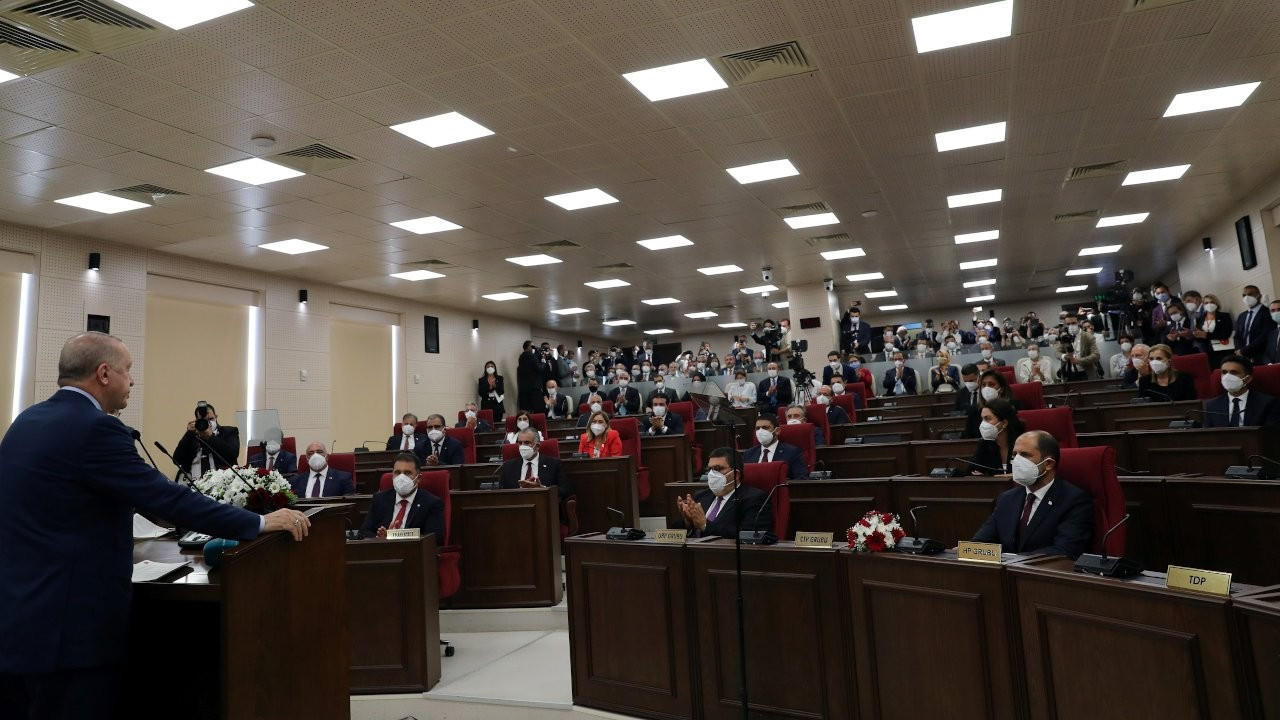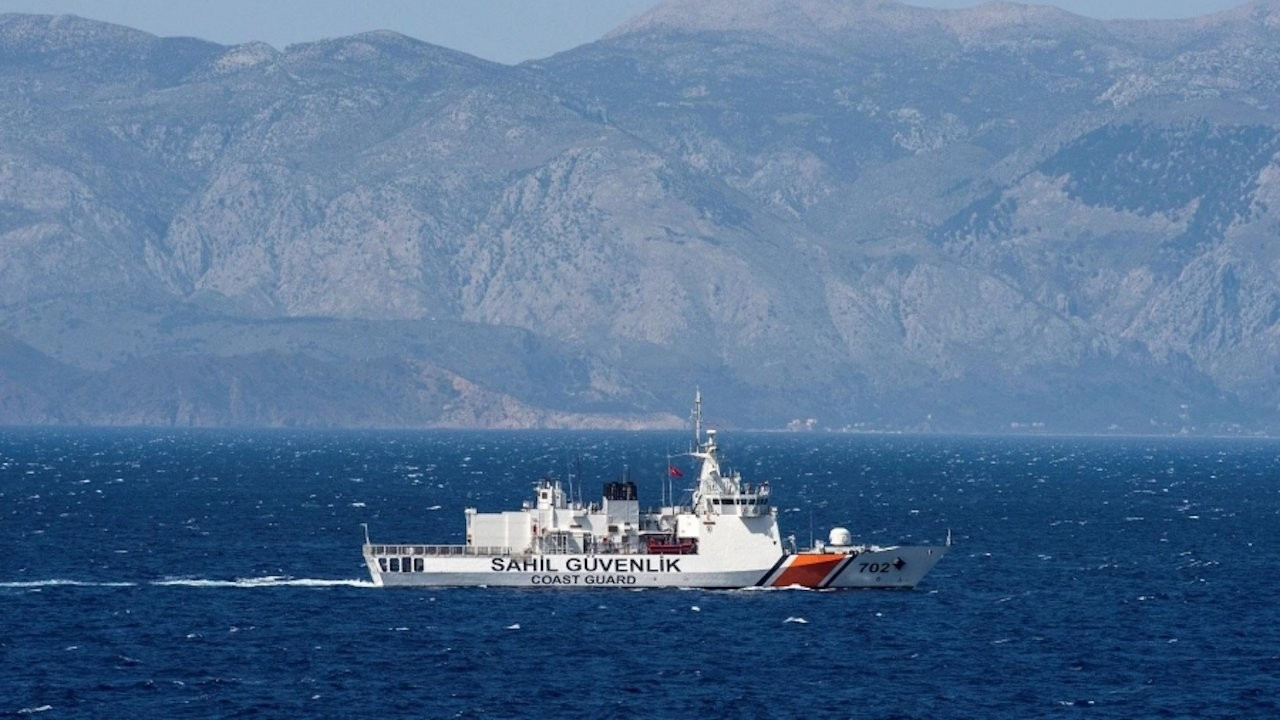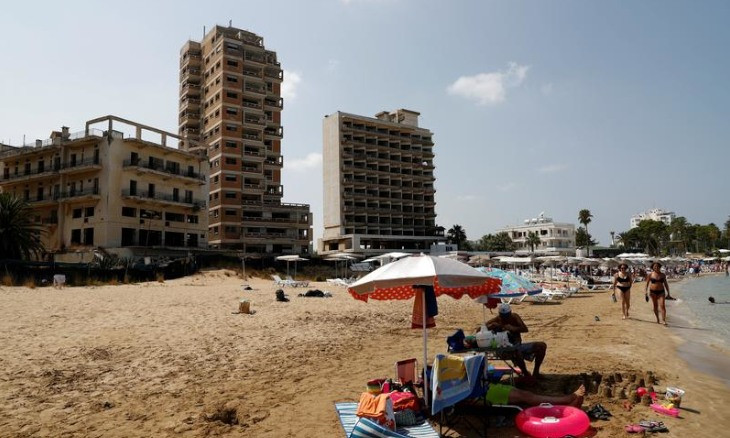US, EU slam Turkish plans to reopen Varosha's residential area
The United States and European Union have expressed concern over plans by Turkey and breakaway Turkish Cyprus to reopen a residential section of Varosha. U.S. Secretary of State Antony Blinken called the move "provocative" and "unacceptable," while Greek Cyprus said it appealed to the United Nations Security Council.
Reuters
Turkish Cypriot authorities announced on July 21 a partial reopening of an abandoned town for potential resettlement, drawing a strong rebuke from rival Greek Cypriots of orchestrating a land grab by stealth.
Varosha, an eerie collection of derelict high-rise hotels and residences in a military zone nobody has been allowed to enter, has been deserted since a 1974 war split the island.
Turkish Cypriot authorities opened a small area for day visits in November 2020, and said on July 21 a part of it would be converted to civilian use with a mechanism in place for people to potentially reclaim their properties.
"A new era will begin in Maraş which will benefit everyone," said Turkish President Recep Tayyip Erdoğan, who was visiting breakaway north Cyprus on July 20. Maraş is the Turkish name for Varosha.
Greek Cypriots fear a change to the area's status displays a clear intent of Turkey to appropriate it. Greek Cypriot President Nicos Anastasiades described the move as "illegal and unacceptable."
"I want to send the strongest message to Mr Erdoğan and his local proxies that the unacceptable actions and demands of Turkey will not be accepted," Anastasiades said.
Greece's Foreign Ministry said it condemned the move "in the strongest terms", while the United Kingdom, a permanent member of the U.N. Security Council, said it would be discussing the issue as a matter of urgency with other council members, saying it was "deeply concerned."
"The UK calls on all parties not to take any actions which undermine the Cyprus settlement process or increase tensions on the island," a Foreign Office spokesperson said.
Greek Cyprus announced that it filed an appeal with the United Nations Security Council over Turkish Cyprus' move.
"This is a clear violation of United Nations Security Council resolutions and will have a negative impact on efforts under way to restart talks," Greek Cypriot Foreign Minister Nikos Christodoulides said after meeting his Greek counterpart Nikos Dendias.
EU foreign policy chief Josep Borrell also expressed concern. "(The) unilateral decision announced today by President Erdoğan and (Turkish Cypriot leader Ersin) Tatar risks raising tensions on the island & compromising return to talks on a comprehensive settlement of the Cyprus issue," he said on Twitter.
#Varosha: Unilateral decision announced today by President @RTErdogan & Mr Tatar risks raising tensions on the island & compromising return to talks on a comprehensive settlement of #Cyprus issue. UN Security Council Resolutions need to be fully respected https://t.co/oktHrJujg4
— Josep Borrell Fontelles (@JosepBorrellF) July 20, 2021
French Foreign Affairs Minister Jean-Yves Le Drian similarly expressed support for Greek Cyprus, saying he discussed the matter on July 20 with his Greek Cypriot counterpart and would be raising the topic at the United Nations.
U.S. Secretary of State Antony Blinken called the announcement "provocative" and "unacceptable."
"The United States views Turkish Cypriot actions in Varosha, with the support of Turkey, as provocative, unacceptable, and incompatible with their past commitments to engage constructively in settlement talks," he said.
"The United States is working with like-minded partners to refer this concerning situation to the UN Security Council and will urge a strong response."
United Nations resolutions call for Varosha to be handed over to U.N. administration and to allow people to return to their homes.
Anastasiades said that if Turkey's "real concern was returning properties to their legal owners ... they should have adopted U.N. resolutions and hand the city over to the U.N., allowing them to return in conditions of safety."
July 20 marked the 47th anniversary of a Turkish invasion mounted in 1974 after a Greek Cypriot coup engineered by the military then ruling Greece. Peace efforts have repeatedly floundered, and a new Turkish Cypriot leadership, backed by Turkey, says a peace accord between two sovereign states is the only viable option.
Greek Cypriots, who represent Cyprus internationally and are backed by the European Union, reject a two-state deal for the island that would accord sovereign status to the breakaway Turkish Cypriot state that only Ankara recognizes.
"A new negotiation process (to heal Cyprus' division) can only be carried out between the two states. We are right and we will defend our right to the end," Erdoğan said in a speech in the divided Cypriot capital of Nicosia.
Varosha has always been regarded as a bargaining chip for Ankara in any future peace deal, and one of the areas widely expected to have been returned to Greek Cypriot administration under a settlement. The Turkish Cypriot move renders that assumption more uncertain.

 Erdoğan's promised good news turns out to be plans to construct gov't complex in Turkish CyprusDiplomacy
Erdoğan's promised good news turns out to be plans to construct gov't complex in Turkish CyprusDiplomacy Greek Cyprus says Turkish vessel fired shots at Cypriot coast guardDiplomacy
Greek Cyprus says Turkish vessel fired shots at Cypriot coast guardDiplomacy US senators ask Biden to pressure Turkey over 'Varosha provocations'Diplomacy
US senators ask Biden to pressure Turkey over 'Varosha provocations'Diplomacy